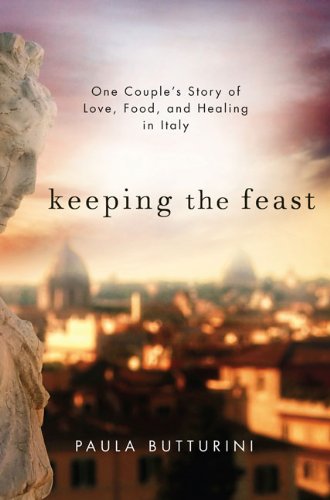 Nefertiti
Nefertiti by Michelle Moran
2007, 463 pages
With the death of Egypt's crown prince, Tuthmosis, his brother Amunhotep is the new heir to Egypt's throne. However, Amunhotep has his own ideas about the future of Egypt, and Queen Tiye, who is currently ruling Egypt by default, hopes for him to take a Chief Wife who will be able to temper his dangerous ideas. Into this steps the irresistible Nefertiti, who convinces the Queen that she can play that role. Mutnodjmet, her younger sister, observes as Amunhotep and Nefertiti together try to build their own version of Egypt, displacing the old gods to worship Aten, the sun. Lacking the grand aspirations of her sister, Mutnodjmet struggles to help her sister maintain her role all the while searching to fulfill her own happiness.
I absolutely loved
The Heretic Queen, so I could hardly wait to start reading
Nefertiti when it arrived from the library. I was excited to revisit the world of Ancient Egypt that Moran so convincingly creates, and once again I was not disappointed. This book is full of interesting characters - Queen Tiye and Ipu (Mutnodjmet's body servant) immediately come to mind as background characters who I nonetheless enjoyed - and Moran's writing succeeds in portraying an Ancient Egypt that is realistic and relatable.
"You can't change the desert. You can only take the fastest course through it. Wishing it's an oasis won't make it so, Mutnodjmet." (p128-9)
Just as I enjoyed watching Nefertari navigate Egyptian politics in
The Heretic Queen, I eagerly followed her mother, Mutnodjmet, in
Nefertiti. It is very easy to sympathize with Mutnodjmet, who is in many ways a foil to her sister. Unlike Nefertiti, Mutnodjmet does not seek power, and finds a niche for herself through her knowledge of herbs and cures. She finds a similar spirit in General Nakhtmin, who desires a quiet life. When Mutnodjmet's relationship with General Nakhtmin interferes with her family's agenda, Mutnodjmet is forced to choose between the two, and I enjoyed watching her character develop throughout the book.
"Be careful here, my lady. Let history forget your name. For if your deeds are to live in eternity, you will have become exactly what your family wants you to be." (p136)
The character of Nefertiti was also well-crafted and interesting to read. At times Nefertiti seems to be driven only by her quest for personal power, to the detriment of Mutnodjmet and others. However, Nefertiti is a complex character brought to life by Moran, and though I didn't always like her, I was intrigued by her portrayal. Her climb to power in some ways mimics that which Nefertari undergoes in
The Heretic Queen, but Nefertiti's motives and ambitions are very different. Take this example:
"I play the goddess to the people!" she cried. "I play the savior of this kingdom when masses of Egyptian soldiers want to revolt and are stopped only when I can convince them that Aten has spoken through me and assured them of prosperity. I am the one who must hold the puppet strings in this play, and only father"--her lower lip began to tremble--"only Father knows how hard and tiring that is." (p316)
As a tangent, I know that I read this book out of order - it was both written and takes place prior to
The Heretic Queen. It was interesting to get to know characters that, without ever actually being introduced, had had such an impact in the world of
The Heretic Queen. Having read
Heretic Queen first, I wonder if my impressions of both novels may differ from someone (I'm sure many of you) who read the books in the proper order. For example, I thought that the scope of
Nefertiti was much greater than that of
The Heretic Queen, but I think that I related to the characters more in
The Heretic Queen. Nefertiti and Mutnodjmet were both complex characters and I quickly became invested in Mutnodjmet, but I didn't root for her quite as much as I rooted for Nefertari in the next installment. I wonder if those who read the books in their proper order might disagree.
At any rate, I thoroughly enjoyed
Nefertiti. It was easy to become invested in the characters and story, and I voraciously devoured every page. I may have to make myself wait longer before picking up Moran's latest novel,
Cleopatra's Daughter, as when I finish that, I'll have run out of things to read by her!
"Have I offended you my lady?"
"Yes, you have."
"I'm sorry. I shall be more careful in the future. After all, you will be one of the most dangerous women at court."
I stopped walking.
"Privy to the secrets that viziers and priests are paying spies very handsomely to procure."
"I don't know what you're talking about."
"Information, Lady Mutnodjmet," hes aid, and he kept walking toward the stables.
"And what do you think information can do?" I called after him.
"In the wrong hands," he replied over his shoulder, "it can do anything." (p74)
 Balancing Acts by Zoe Fishman
Balancing Acts by Zoe Fishman


































